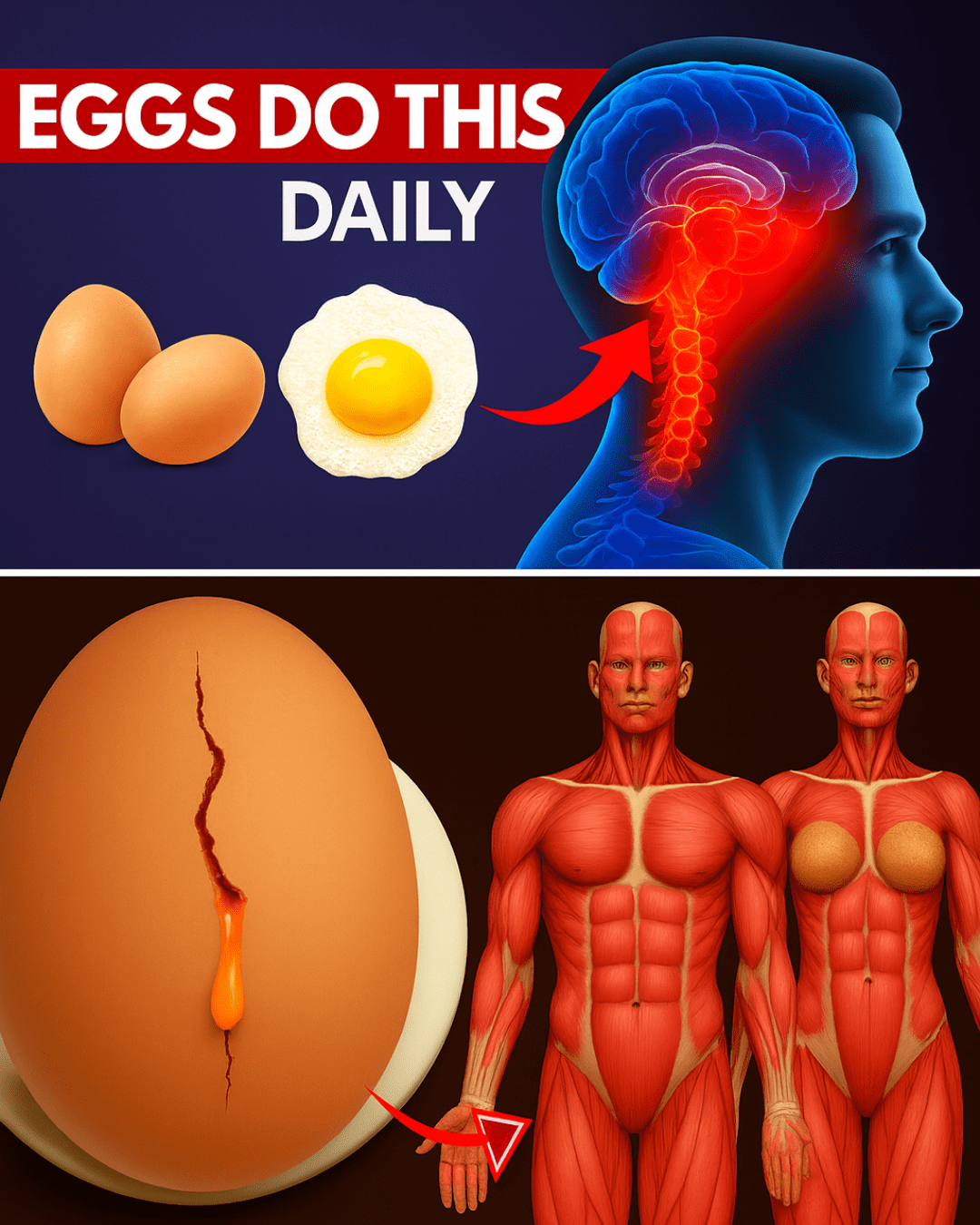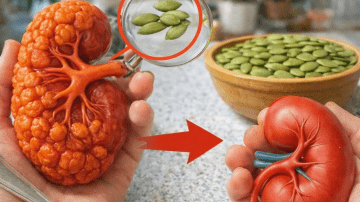What if the humble egg, a breakfast staple loved worldwide, is hiding secrets that could make or break your health? Eggs are celebrated for their protein-packed goodness, but there’s more to these shells than meets the eye. From hidden health risks to surprising nutritional differences, the truth about eggs might leave you rethinking your morning scramble. Whether you’re a fitness buff or a weekend omelet enthusiast, these 11 jaw-dropping facts will make you pause before cracking your next egg—and keep you glued to the page to learn how to eat them smarter.

🌟 Eggs: A Nutritional Powerhouse with a Catch
Eggs are a dietary superstar, loaded with protein, vitamins, and minerals like choline and selenium. But beneath their wholesome reputation lies a world of surprises that could impact your health. From contamination risks to myths about freshness, understanding eggs is key to enjoying them safely, especially for middle-aged and elderly individuals who prioritize wellness. Ready to uncover the truths that could change your egg game forever? Let’s dive into the 11 facts that will make you think twice.
🦠 1. Salmonella Lurks in the Shell
Eggs can harbor salmonella, a bacteria that causes severe food poisoning. It can contaminate the shell or even the inside of the egg before it’s laid. Symptoms like nausea, fever, and cramps can hit hard, especially for older adults with weaker immune systems. Cooking eggs thoroughly and washing hands after handling them is non-negotiable.
🥚 2. Not All Eggs Are Created Equal
Think all eggs are nutritionally identical? Think again. The hen’s diet and environment matter. Pasture-raised and organic eggs often boast higher levels of omega-3 fatty acids, vitamin A, and vitamin E compared to conventional eggs. Brown or white shells? It’s just genetics, not nutrition—but the hen’s lifestyle makes all the difference.
❤️ 3. Cholesterol Concerns: Myth or Reality?
Egg yolks are high in cholesterol, sparking decades of debate. Recent studies show that for most healthy people, eggs don’t significantly raise heart disease risk. However, if you have high cholesterol or heart issues, moderation is key. Consult a doctor to tailor your egg intake to your needs.
🕰️ 4. Freshness Isn’t Always What It Seems
A shiny eggshell doesn’t guarantee freshness. Commercial eggs are often washed and coated to look pristine, masking their age. To test freshness, place an egg in water: fresh ones sink, older ones float. For the best quality, buy from local farms or check the packing date on cartons.
📦 5. Store-Bought Eggs Can Be Weeks Old
That “fresh” carton from the supermarket? It might be over a month old. Eggs can sit in storage or transit for weeks before hitting shelves. Older eggs are safe if refrigerated, but their quality dips, affecting taste and texture. Local markets or farm-fresh eggs are your best bet for peak freshness.
🚨 6. Harmful Additives in Some Eggs
Commercial hens are sometimes fed antibiotics, synthetic hormones, or GMO grains, which can indirectly affect the eggs you eat. These additives may raise health concerns over time. Choosing certified organic or free-range eggs minimizes exposure to unwanted chemicals.
😷 7. Egg Allergies Are More Common Than You Think
Egg allergies, particularly to egg white proteins, are among the top food allergies, especially in children but also in adults. Reactions range from mild rashes to life-threatening anaphylaxis. If you notice itching or swelling after eating eggs, consult a doctor to rule out an allergy.
🍳 8. Raw Eggs Are a Risky Gamble
Raw eggs are a staple in some protein shakes or recipes, but they’re a breeding ground for bacteria like salmonella. Cooking eggs to at least 160°F kills pathogens, making it the safest way to enjoy their benefits without risking your health.
🕵️ 9. Fake Eggs Are a Real Threat
Believe it or not, counterfeit eggs exist in some markets. Made with chemicals like sodium alginate, these fakes mimic real eggs but can harm your health. Always buy from trusted sources and inspect eggs for unusual textures or smells to avoid being duped.
😣 10. Overeating Eggs Can Upset Your Stomach
Eggs are nutritious, but too many can cause bloating, gas, or constipation in some people. Their high protein and sulfur content can stress digestion if overconsumed. Stick to 1–2 eggs daily for most people to keep your gut happy.
🔥 11. Overcooking Robs Eggs of Nutrients
Hard-boiled eggs with green-tinged yolks? That’s a sign of overcooking, which reduces nutrients like vitamins A and D. Overcooking also makes eggs less palatable. Boil for 9–12 minutes for perfect hard-boiled eggs that retain their nutritional punch.

🧑🍳 How to Enjoy Eggs Safely and Smartly
Want to savor eggs without the risks? Here’s how:
Cook Thoroughly
Always cook eggs until the yolk and white are firm to kill bacteria. Scrambled, poached, or boiled—ensure they reach 160°F.
Choose Quality
Opt for organic, free-range, or pasture-raised eggs for better nutrition and fewer additives. Check labels for certifications.
Store Properly
Keep eggs refrigerated at 40°F or below to maintain freshness. Avoid storing them in the fridge door, where temperature fluctuates.
Test Freshness
Use the water test to check if eggs are fresh. Discard any that float or have cracks to avoid contamination.
Moderation is Key
Limit intake to 1–2 eggs daily unless advised otherwise by a doctor, especially if you have cholesterol concerns.
🌿 Why These Facts Matter
Eggs are a fantastic addition to a balanced diet, but knowledge is power. Understanding their risks and nuances empowers you to make informed choices, especially as you age and health becomes a priority. For middle-aged and elderly individuals, avoiding foodborne illness and maximizing nutrition is crucial for vitality. These facts aren’t meant to scare you—they’re here to help you enjoy eggs smarter.
💡 My Egg Awakening
After learning these facts, I changed my egg habits. I started buying pasture-raised eggs from a local farm, ensuring better nutrition and freshness. I also perfected my boiling technique—no more green yolks! Most importantly, I now cook eggs thoroughly and limit myself to one a day, keeping my cholesterol in check. The result? I enjoy eggs guilt-free, knowing I’m maximizing their benefits while dodging the risks.
🌍 A Sustainable Staple
Eggs are not only nutritious but also eco-friendly when sourced responsibly. Supporting local farms or choosing organic eggs reduces environmental impact and promotes ethical farming. For those in their golden years, this aligns with a lifestyle that values health and sustainability.
🥚 Crack Eggs with Confidence
Eggs are a dietary gem, but they come with surprises that demand respect. From salmonella risks to fake eggs, these 11 facts reveal the importance of choosing, storing, and cooking eggs wisely. By making informed choices, you can savor their protein-packed goodness without worry. Next time you crack an egg, you’ll do it with a newfound appreciation—and a touch of caution. Ready to elevate your egg game? Start today and enjoy this staple the smart way.






